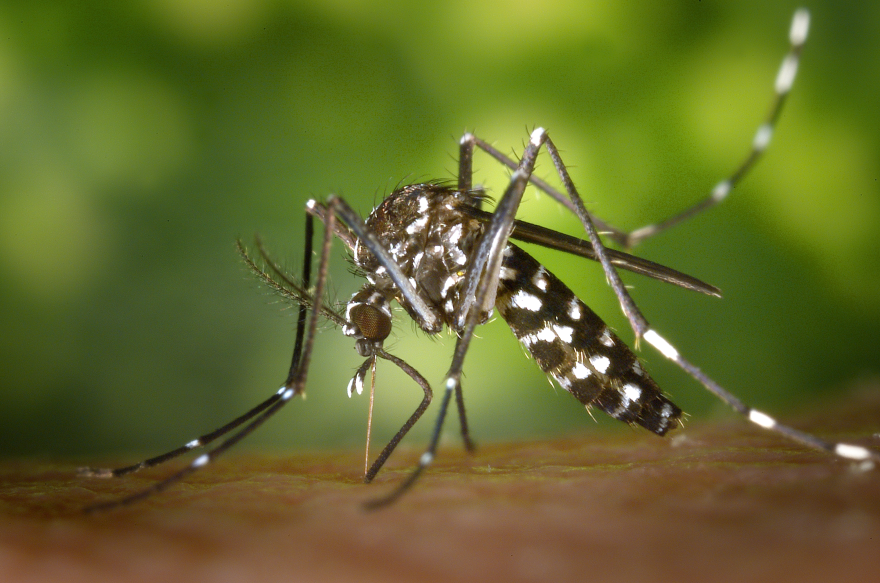ALLENTOWN, Pa. — Lehigh Valley health experts are looking at what dangers are buzzing about here, as mosquito-borne illnesses are on the rise in the northeast part of the country.
One disease, called Eastern Equine Encephalitis or EEE, is the cause of at least one death so far this season, prompting curfews in some parts of Vermont and Massachusetts.
"In Pennsylvania, we have quite a few species of mosquitoes that carry multiple types of illnesses," said Haley Krueger, Allentown Health Bureau's communicable disease program manager.
"And those numbers fluctuate throughout the mosquito season.”
According to Krueger, EEE, West Nile virus and Jamestown Canyon virus all can spread through the types of mosquitoes found in Pennsylvania.
"We do know that West Nile virus is in the Lehigh Valley,” she said. “It is possible to come in contact with an infected mosquito, but we're not seeing the cases come through."
"We do know that West Nile virus is in the Lehigh Valley."Haley Krueger, Communicable Disease Program Manager, Allentown Health Bureau
Krueger said West Nile has been confirmed by the state, but EEE, which is getting a lot of attention in northern states, is less likely to be here.
“It definitely is something that is possible with the types of mosquitoes we see in Pennsylvania, though we're not seeing that migration as clearly through this season,” she said.
Krueger said the state does monitor and spray for mosquitos across the Lehigh Valley.
Risks, signs and symptoms
"The biggest risk for anybody, whether you attract a lot of mosquitoes or very few mosquitoes, is are you at risk at all?” said Dr. Luther Rhoades, a Lehigh Valley Health Network infectious disease specialist.
“This time of year, we just have to pay a lot of attention to it, especially since the number of isolation and the number of cases has gone up.”
“The thing to be alert for is if you have fever, confusion, severe headache. And by all means, see your doctor."Dr. Luther Rhoades, Lehigh Valley Health Network infectious disease specialist
Rhoades said his team has seen a few cases of West Nile this year and warned people of what they should look out for and how to protect themselves.
"Mosquitoes run a cycle that they feed on birds and they feed on horses and in that cycle, viruses spread," he said.
"And when a human being gets in the middle of that cycle, gets near birds and so on, dead birds are infected birds, the mosquitoes in that area carry, can carry, and we know they do carry, viruses like West Nile.
“Most people that have West Nile infections have minor or no illness. Only one in five individuals, in fact, has any symptoms at all.
"And the vast majority of people who have symptoms have some fever, some maybe some mild rash, three to five days in duration."
Rhoades also explained that people who are at higher risk for complications of West Nile are those age 50 and older or who are immunosuppressed.
“The thing to be alert for is if you have fever, confusion, severe headache," he said. "And by all means, see your doctor."
Protecting yourself
He said the best defense is to protect yourself against bites by wearing long clothing at dusk and dawn, using bug spray (with or without DEET, he said both are fine) on skin, and putting Permethrin powder on clothing.
He also recommended getting rid of any standing water and using mosquito dunks to kill larvae before they mature.
"Tip over any bottle caps or anything that has standing water."Dr. Luther Rhoades, Lehigh Valley Health Network infectious disease specialist
"Tip over any bottle caps or anything that has standing water," he said. "But ornamental ponds, again, bird baths and so on, they collect water and can be treated with the very inexpensive mosquito donuts" or dunks.
EEE has infected six people in the northern states so far, and claimed the life of one person.
According to the U.S. Centers for Disease Control, it can cause a febrile illness or neurologic disease, including meningitis or encephalitis.


